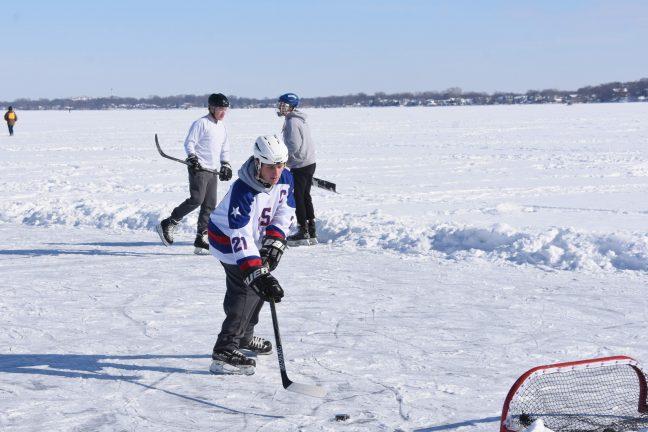During much of the spring semester at the University of Wisconsin, it is cold outside. Some students are not too bothered by the cold — they’re able to tolerate it well enough to go outside and walk, run, fly kites, skate, fish, bike and a variety of other activities.
Despite the ability of these brave students to endure the cold, their outdoor physical activity is often significantly reduced during the wintertime.
These drastic lifestyle changes lead to the weakening of physical, mental and spiritual health. Being strong in every aspect of their health is important for good academic and vocational performance.
Multiple studies show the unique benefits that individuals experience when spending time outside, whether or not it was spent being active. One such study, published in the Journal of Environmental Psychology, sought to “explore this connection between the experience of vitality and exposure to outdoor and natural environments,” revealing “a consistent positive relation between being outdoors and subjective vitality.”
To solve traffic problems, we need more driverless cars in Madison
Another study, published by the National Library of Medicine, confirms this theory.
“Compared with exercising indoors, exercising in natural environments was associated with greater feelings of revitalization and positive engagement, decreases in tension, confusion, anger and depression, and increased energy,” the study said.
Overall, the cold weather makes it more difficult for students to completely experience the advantages of exercising when they are not able to use the outdoors with their daily movement.
To counter these harmful effects students feel every year come winter, UW must do more to encourage outdoor activity during the winter. UW should redirect some of the resources being dedicated to its warm weather and indoor sports to support more outdoor winter activities.
Polarizing media trends should be considered main reason for increased youth voter turnout
For example, UW should provide outdoor winter equipment for free or at a reduced price, broadening its available products to include ones like snow hats, gloves, snowshoes, ice skates, hockey equipment, sleds and fishing poles. This gear would promote outdoor activity which would improve physical and mental health.
In addition to providing outdoor winter gear, UW should promote outdoor physical activities and events. For example, rather than using its resources to support indoor, sedentary activities like concerts, lectures, sporting events, indoor social events and food and beverage operations, the school should redistribute more of those allocations to support exercise-based activities.
Letter to the Editor: UW System-wide student governance would address representation issues
It should be noted that UW has recognized the importance of increasing outdoor opportunities during the cold season and is taking steps to support its students during the winter. The school is hosting a series of events called Winter Carnival, involving activities like mini golf on the ice, a fishing derby and free ski and snowshoe rental however many activities like broomball on the lake and hockey on the lake are canceled.
Unfortunately, the Winter Carnival is limited to a 5-day period, extending from Feb. 7 through 12. While the initiative is a great idea, it is very short-lived in its scope. Such events should be extended from the beginning of the semester through mid-March when it begins to become tolerably warm at a minimum.
Investing in student wellbeing is not an economic loss. UW could likely reduce its expenditures in other areas — such as physical and mental health issues arising from a lack of time spent outdoors during the winter — if it were to both promote more outside activities and provide the resources necessary for students to take advantage of these opportunities. UW would thus help improve the wellness of its students and in turn promote their academic and vocational success.
Brandon Alfonso ([email protected]) is a student studying environmental science.














